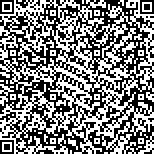李亚梅,徐丽,杨艳田,金艳,余茜.重复经颅磁刺激对脑梗死后轻度认知功能障碍的影响[J].中华物理医学与康复杂志,2015,(10):739-742
扫码阅读全文

|
| 重复经颅磁刺激对脑梗死后轻度认知功能障碍的影响 |
|
| |
| DOI: |
| 中文关键词: 重复经颅磁刺激 脑梗死 认知功能障碍 事件相关电位 |
| 英文关键词: Repetitive transcranial magnetic stimulation Ischemic stroke Mild cognitive impairment Event related potential |
| 基金项目: |
|
| 摘要点击次数: 4466 |
| 全文下载次数: 5728 |
| 中文摘要: |
| 目的观察重复经颅磁刺激(rTMS)对脑梗死后轻度认知障碍患者认知功能的影响。 方法选取脑梗死后认知功能损害但未达痴呆诊断标准的患者45例,按随机数字表法分为观察组(32例)和对照组(30例),2组均给予常规药物治疗和认知功能训练,观察组在此基础上增加rTMS治疗(刺激左侧前额叶背外侧皮质,5Hz,80%运动阈值)。2组患者均于治疗前和治疗4周后(治疗后)进行神经心理评分和听觉事件相关电位检测。 结果治疗后,2组患者的蒙特利尔认知评估表(MoCA)评分较组内治疗前均显著升高,差异有统计学意义(P<0.05),且治疗组治疗后的MoCA评分亦显著高于对照组治疗后,差异有统计学意义(P<0.05)。治疗后,2组患者的P300潜伏期均较组内治疗前缩短,波幅均较组内治疗前升高(P<0.05),且观察组治疗后的潜伏期和波幅分别为(355.67±16.43)ms和(8.69±1.65)μV,与对照组治疗后的(372.76±23.35)ms和(7.03±3.04)μV比较,差异均有统计学意义(P<0.05)。 结论rTMS可显著改善脑梗死后轻度认知功能障碍患者的认知功能,且相对安全。 |
| 英文摘要: |
| Objective To explore the effects of repetitive transcranial magnetic stimulation (rTMS) on cognitive ability in patients suffering from mild cognitive impairment (MCI) after ischemic stroke. MethodsForty five ischemic stroke survivors with MCI but not meeting the criterion for diagnosis as dementia were recruited, and were randomly assigned into an rTMS group (32 patients) and a control group (30 patients) according to a random number table. Both groups received the routine drug therapy of medicine and cognitive function training, and the rTMS group was additionally given rTMS over the left dorsolateral prefrontal cortex at 5 Hz and 80% motor threshold. The treatments lasted for 4 weeks. The Montreal Cognitive Assessment (MoCA) and auditory event related potential (ERP) were tested for both group before and after the treatment. ResultsAfter the treatment, two groups showed significant improvements in the average score of MoCA compared to that before the treatment, and that of the rTMS group was significantly higher than that of the control group. For both groups, the P300 latency shortened and the amplitude increased after the treatment. Moreover, the latency and amplitude of the rTMS group increased to 355.67±16.43 ms and 8.69±1.65 μV, respectively, after the treatment, significantly shortened and lengthened than that of the control group [(372.76±23.35 ms and 7.03±3.04 μV), respectively]. ConclusionsrTMS can significantly improve the cognitive ability of ischemic stroke survivors in a relatively safe way. |
|
查看全文
查看/发表评论 下载PDF阅读器 |
| 关闭 |
|
|
|